Who knew that a film about a child neglect and accidental kidnapping could be so charming, heartfelt, and transformative?
Savannah Smiles was released in 1982 and was a surprise box-office success. The film follows Savannah (Bridgette Anderson), the six-year-old daughter of a Salt Lake City wealthy businessman who is running for US Senate. Savannah is emotionally neglected by her parents, despite having wealth and her basic needs met. One day, inspired by watching an episode of the Little Rascals, Savannah gets an idea to pack her bags and run away. She is desperate to find the love she is missing at home.
She sneaks into the backseat of a beat-up 1964 Pontiac, the first empty car she sees at a playground. The car belongs to Alvie (Mark Miller) and Bootsie (Donovan Scott), two convicts recently escaped from prison. Alvie and Bootsie are on the run in a getaway car that is so run down, it can barely even get away. They are surprised to discover Savannah and don’t know quite what to do with her. They can’t go to the cops for obvious reasons. They soon realize she is the daughter of a public figure and ask for ransom for her safe return.
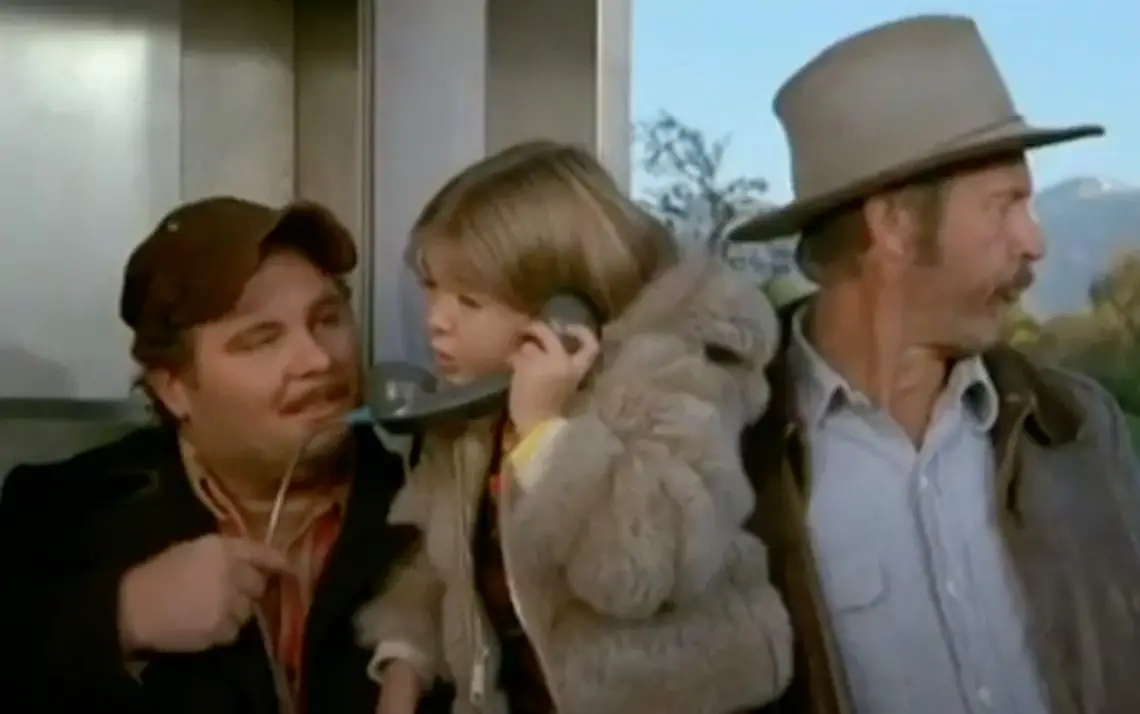
Alvie, Bootsie and Savannah become a family of sorts on the run together. The unlikely threesome set up house in an abandoned shack, and Bootie’s feminine qualities and housewifely position with Alvie as the man of the house is harmless, and quite sweet actually. They play together, tell stories, build trust and connection, and make a home—the kind of home none of them have ever had before. Eventually the growing love they have for Savannah means they can’t in good conscience ask for money in exchange for her return. They just want her to be safe, to go home, and to be taken care of and loved.
Savannah Smiles works because the two men are not threats to Savannah at all; in fact, they end up giving her the love she is looking for. The love that is missing from her family of origin. We end up routing for them to stay together, even though we know the whole time she must eventually return back to her family. In the end she does safely return home, and Bootsie and Alvie go back to their lives behind bars. It’s a sad ending to a sweet little story.
Many kids growing up in the ’80s might remember or even have a vague recollection of this film. You might recall the handsome patriarch Mark Miller (of Please Don’t Eat the Daisies sitcom fame), the comedic genius Donovan Scott (Popeye) and of course the incomparable introduction of Bridgette Anderson (child star who played Gretel in Fairy Tale Theater, Parent Trap 2, and countless other ’80s shows and films), who received a nomination for a Youth in Film Award for Best Actress for her portrayal of Savannah. Other cameos in the film include Peter Graves as Detective Harland Dobbs, Pat Morita as Father Ohara, and for Twin Peaks fans, Michael Parks (aka Jean Renault) as Lt. Savage.
Mark Miller (Alvie) wrote this film for his real-life daughter, who has the film’s namesake, and hoped for her to play the lead, but by the time they started production she was too old for the part. Bridgette Anderson found her way into the film by telling a story of Br’er Rabbit, Br’er Fox and Br’er Bear as part of her audition. Miller liked it so much he put the story in the film. It is adorable and so is his movie. From start to finish, we feel all warm and fuzzy inside despite the scandalous and at times depressing subject matter. And despite the fear and anxiety we have about the possibility of Alvie and Bootsie getting caught.
In exploring Savannah Smiles, in no way am I condoning child abduction, children running away from home with no support, or making light of the very real experiences of child trafficking that happen every day. There are elements of this film that are just unrealistic, not representative of most child kidnapping cases and that have the potential to send misleading messages to young kids. At one point in the film, even Bootsie and Alvie end up giving Savannah a speech about the dangers of getting into cars with strangers and how this whole thing could have gone much differently. She was very lucky.
So yes, the movie asks viewers to suspend disbelief completely to feel that Savannah is safe and nothing bad will happen to her with these two men. As the story unfolds, we see them showing her more love than she had ever experienced before. The relationship is intimate, but not at all inappropriate (no more than accidental child kidnapping can be), and is a loving reparenting that all of them need in their own ways. Reflecting on Savannah Smiles 40 years later, the film’s messages hold strong. Through the relationships of Alvie, Bootsie, and Savannah we see the possibilities of healing from abuse and neglect, reparenting with unconditional love and finding chosen family.
Alvie’s Story
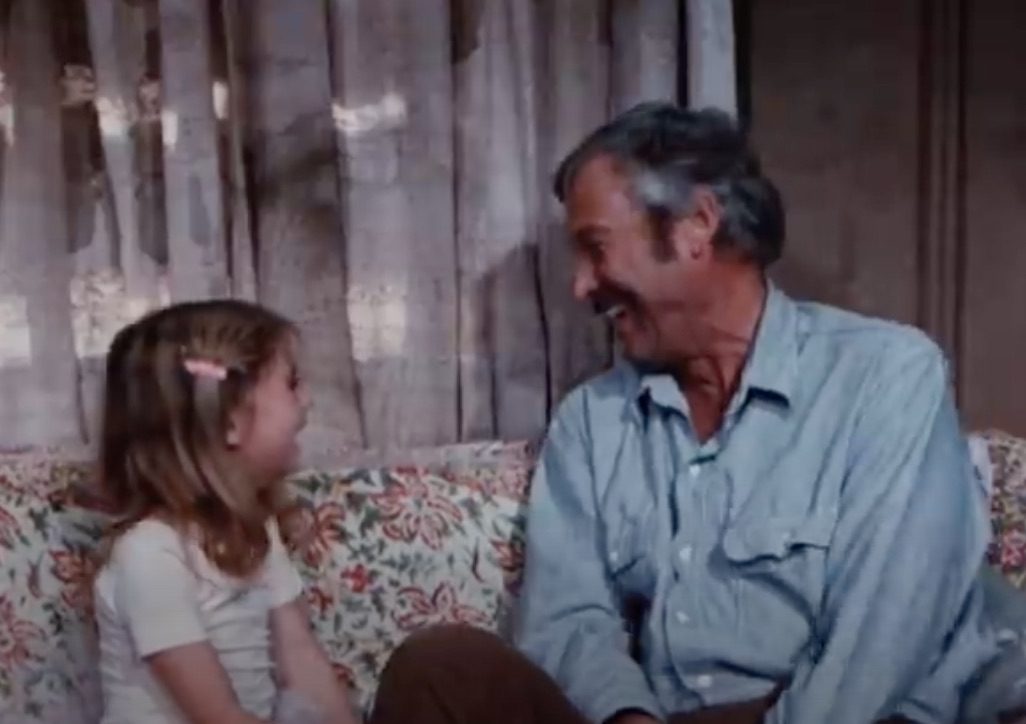
Savannah Smiles was a passion project of Mark Miller (Alvie) to heal his childhood trauma history. Alvie’s character has suffered emotional neglect, physical neglect and abuse in his childhood. He tells Savannah a story about growing up on a Texas country farm with his cousins and aunt and uncle. As a poor, neglected kid, he never got presents or had any sense of love or connection with his family. We get the sense that he was abandoned by his parents and was on his own, learning to survive the best way he could. Unfortunately his survival included stealing and lying, later developing into his profession. He is stubborn and set in his ways, but also gentle and kind, an abused child who was never set up to succeed in life.
His face lights up and a smile extends over his tanned leathery skin, when he tells Savannah the one time he did in fact get a present in all of his childhood. When he was 11, he was gifted firecrackers that he set off underneath his sleeping aunt and uncle. A prank that caused quite the commotion and that in the telling sends bursts of laughter through him and Savannah. As punishment, his family leaves him at the farm while they go into town for the day. His face changes and the wrinkle lines return as he relates how he was severely physically beaten when the aunt and uncle came home that evening. As a result, he decided to run away from home and has never looked back.
Alvie’s story is not only of neglect, but also bullying and physical abuse from his supposed caretakers. It is no wonder that a life of survival, mistrust, and crime would follow. Through this story we see Alvie’s pain, the trauma he carries, and the ways that emotional neglect, abandonment, and physical abuse creates psychological scars.
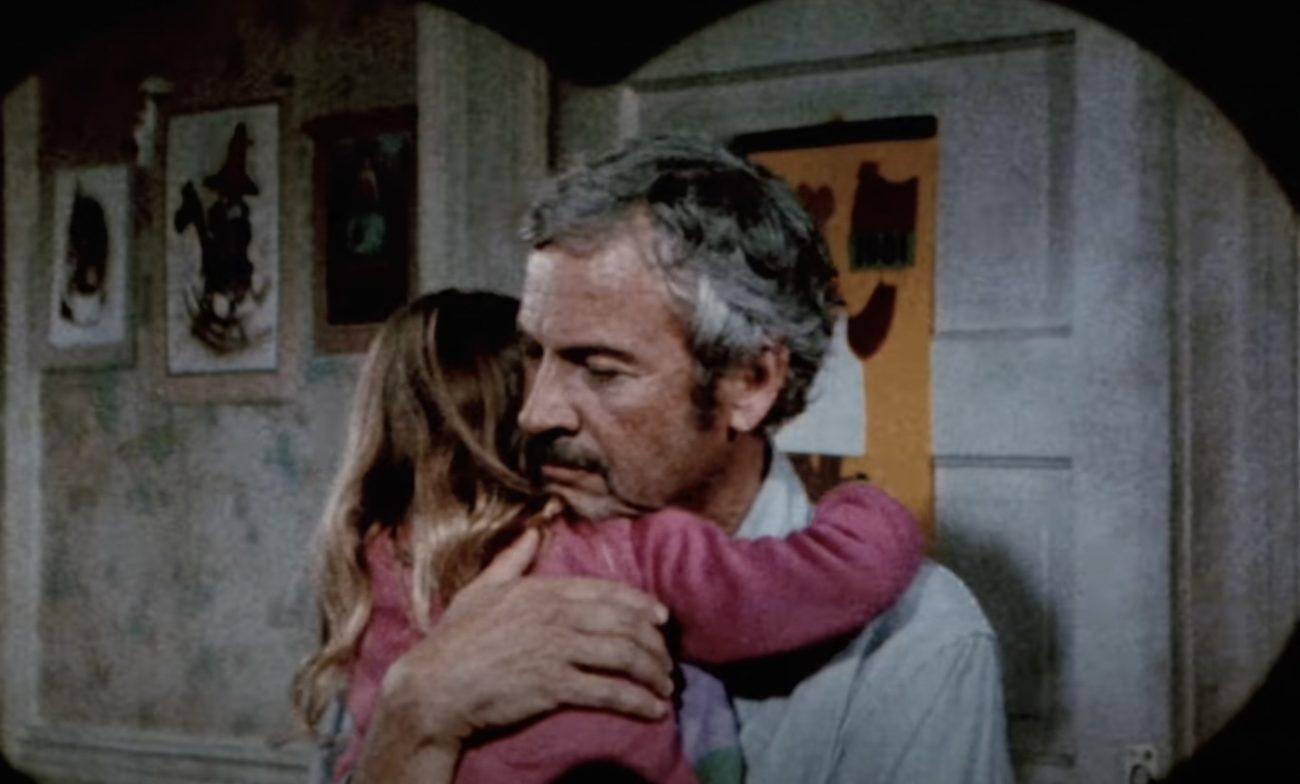
I watched Savannah Smiles with my grandpa, who was basically Alvie. My grandfather grew up on a farm in Boone, Oklahoma and he was neglected and physically abused as a young child. At first he was an only child, then during the depression, all of his cousins and other kin folk in Oklahoma had to move in and live with him and his parents.
Once the apple of his mother’s eye, he became an afterthought. He had to share everything: his few toys, his bed, his room, his limited food. He was bullied, teased, and physically abused by his family and ran away from home by way of the Navy. As a teen he got married, an attempt to start a new life of his own, that was just his.
As a defense against the neglect of his childhood, he developed a hard southern persona and it was near impossible for him to let people in. He did not end up incarcerated like Alvie, but held his emotional wounds with him in the world; being mean to strangers, not having close relationships, acting out his hurt and sadness by needing to be right, spitting out his stubbornness with each piece of tobacco he chewed.
I was his Savannah.
He and I would play in the park, make pretend, he would dance and sing with me, he helped me with my homework, and always made me feel good about myself. I felt his love every day. The love he did not quite ever know how to freely show to others or himself, he gave me loads of it.
Together we watched Savannah Smiles over and over, with Alvie’s dialogue coming out of grandpa’s mouth, his own Okie dialect similar to Mark Miller’s Texas drawl. He would laugh until he cried watching Bootsie serve those mashed potatoes, and when Savannah sang “One Little Duck” in the bathtub, he teared up each time.
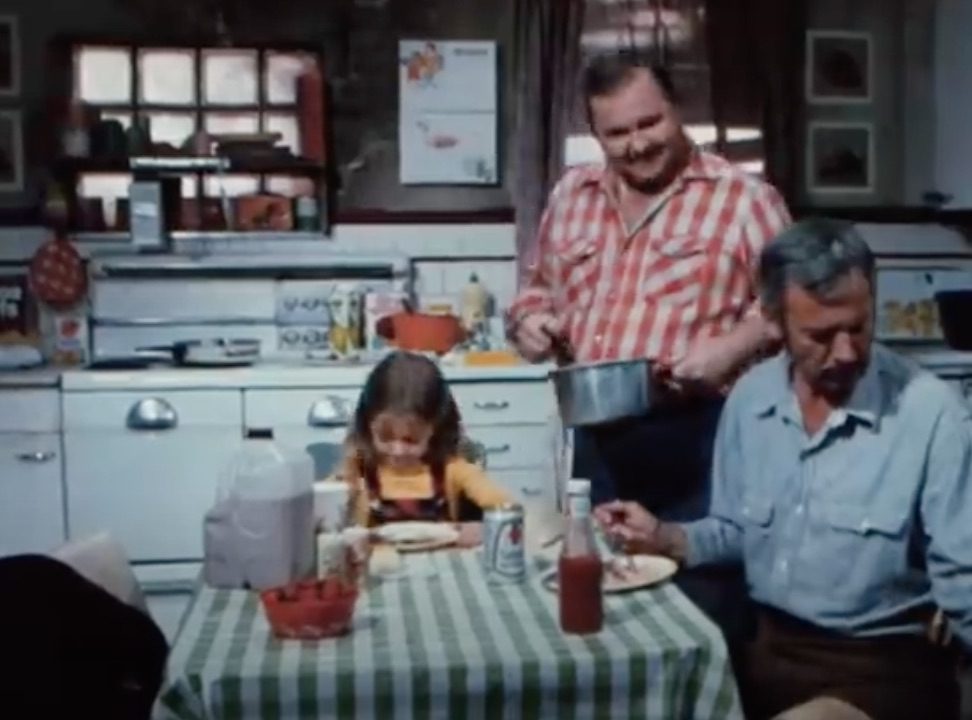
For my grandpa, for Mark Miller, for me, and for audiences alike, Savannah Smiles is about revealing love, finding family, healing childhood abuse, and reconnecting with your inner child. Set to the soundtrack of Ken Sutherland’s lyrics and music, the score of Savannah Smiles continues the narrative of healing from childhood trauma and neglect. Each song illuminates the heartbreak of Alvie’s experiences and presents an opportunity for a different life circumstance, one where Savannah reminds him, he is not alone.
When Savannah Smiles
Everything is fine, every single time,
Savannah smiles at me.
Smile Savannah, just one more time for me.
For one sweet smile you see,
hides all my pain and misery.
When we think about childhood neglect, specific horrifying images may come to mind: a child who does not have enough food and who is emaciated, a child who is left behind or forgotten as the family goes on a trip. An infant who is left crying in the crib without a parent soothing them, or a latchkey kid whose parent goes off on an alcohol bender for the whole weekend and the child has to take care of their younger siblings. Physical neglect or abuse often has clear indications for children in the form of things like bruises, malnourishment, emotional disregulation, and acting out.
These are all certainly examples of what we understand to be childhood neglect, but the definition is much broader and often leaves out the impact of emotional neglect. When parents or caretakers have unrealistic expectations, repeatedly don’t pay attention to the child, are not mirroring or attuning to the emotional needs or experiences of the child or are otherwise caught up in their lives, these can often lead to emotional neglect of their children.
These could be caretakers who mean well but who are narcissistically injured and thus unable to think outside their lives and experiences. These could be absent parents (whether it be through overworking or addiction). These could be parents who never learned the tools of attunement from their own families and don’t know how to be present with their kids.
Through Savannah’s family of origin, we see these parental examples of emotional neglect. Her mom and dad strive to maintain social status and keep up appearance. They prioritize work and political success over play and quality time with her and this impacts Savannah deeply. At a glance, Savannah’s life is a fairytale. She lives in huge mansion with all the food, toys and everything her heart could possibly desire. With a full staff running the house and nannies attending to Savannah, she has all of her basic needs met and more.
But her parents are rarely physically there, and instead try to buy her love or at least keep her complacent to their priorities. In the middle of a fancy adult party, they pay her a quarter to go into her piggy bank instead of kissing her goodnight, so they don’t have to leave their sparkling dinner conversation. Here is some money, now leave us alone. The message is clear: work, politics and social elitism are more important than Savannah. Money is everything.
But of course it’s not. A child may have all the riches in the world and still suffer childhood neglect. Savannah receives presents all the time, but with no-one to play with or connect to, she is longing to be loved, longing to be seen, longing to be prioritized. There are long term emotional damages to being ignored, to being made to feel like a burden, to being told without words that you are unloved. This is a home where Savannah does not smile.
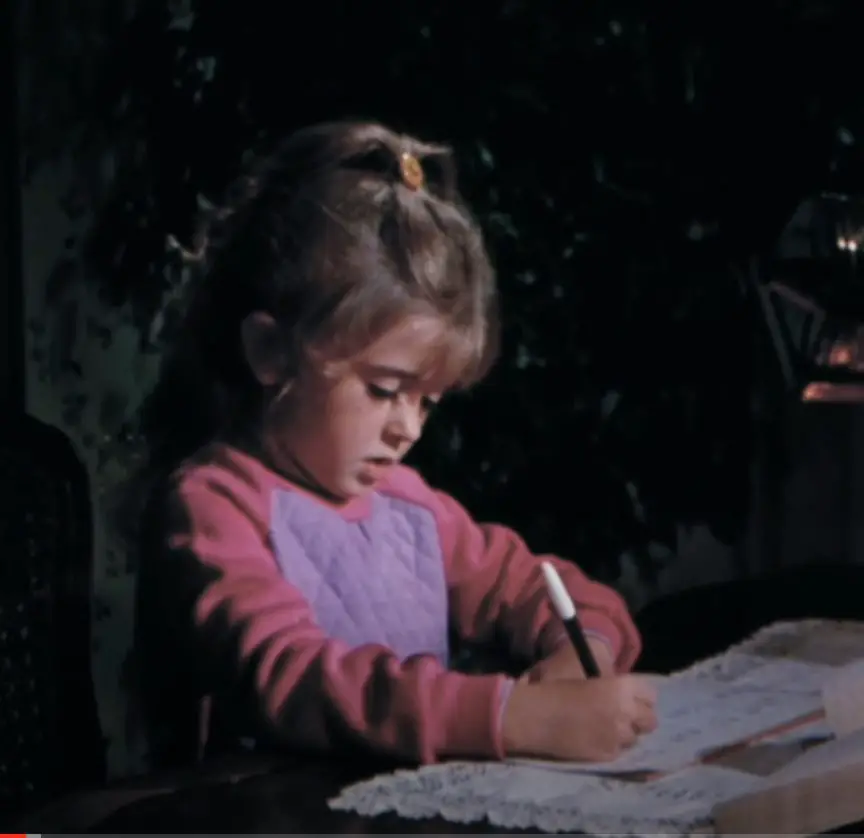
When she decides to run away from home, she writes a letter that says “I’m running away because…” and draws a sad face as a finish to her sentence. All she knows is this sadness. She could not finish the letter because she does not have the language to say more than what the sad face can convey (how could she, she is a child?). She does not have words yet for the abuse and neglect, to express her own pain and trauma. Most children do not have verbal language to describe their experiences but will express and work through their sadness, fear and other emotions in other ways, mostly through play.
Toward the beginning of the film, right before Savannah runs away at the park, she is with her cousin Beth (played by Savannah Miller, the actual daughter of Mark Miller) who tells her a princess fairy tale as a harbinger of the events to follow. In her story, the princess has a spell cast over her by a witch and is lost in the forest. Two princes, disguised as vagabonds, become her guardian angels who will “…find her, care for her, and one day in a magic moment, they will change.” Savannah listens on with awe, excitement, and exclaims that this is her favorite part! Beth finishes with, “Their love for her will change her back into a princess and they will reclaim their kingdom.” “But what happened to the princess?” Savannah inquires. “She will become the Queen of all the realm,” Beth retorts. “Wow!”
Bootsie and Alvie as her disguised princes, give her their love and she, once lost, becomes found. The metaphor of the fairy tale continues in their play as Prince Stephan (Bootsie) defends the Princess (Savannah) from Bad King Boris and the wicked witch. While these are imaginary characters, perhaps Boris and the witch represent her parents or more likely the pain of neglect. Bootsie takes lead in restoring the castle to safety and order. Play is a way Savannah can process the trauma of neglect and to do so with someone who loves and cares for her.
Smile away all the sadness,
find me a home,
away from that madness that I’ve always known.
I’m tired of being afraid and alone,
so smile, Savannah smile.
So many of us who are survivors of childhood abuse and neglect, have not been allowed to play freely; playing was a luxury and we were too busy surviving to be able to feel safe to express ourselves this way. We see this with Savannah as well as Alvie, and we can imagine the same to be true for Bootsie too. The montage that plays behind the theme song “When Savannah Smiles” demonstrates the power of play for all three, as they throw a ball, fly a kite, make flower headbands, and hide and seek together on the mountain.
As they play, Savannah’s smile awakens the joy within Bootsie and Alvie, and this unlikely family, experiences true play, the likes of which they have never seen before. There are no censors here, just pure, innocent, delight. The princes and princess have created a safe home, one where they are not alone, where there is no sadness, only free spirited laughter.
Love Will Never Be The Same Again
They said that we would never, find our way together
Just a foolish fantasy, they were wrong, can’t you see.
For in one precious minute,
love swept by and caught us in it.
Gave us both a reason why, gave us both the will to try.
Love will never be the same again,
love may never call my name again,
yet for all that I’ve been through,
it’s been worth it loving you,
love will never be the same again.
The finale song leads in with a sad, sorrowful harmonica. “Love Will Never Be The Same Again” plays as we close in on Savannah getting into a car on her way home with her mother. With a sweet smile she waves to Bootsie and Alvie through the back window. They can only nod and smile at her in return because they are handcuffed. With tears through their smiles, Bootsie says “I hope no one tells her we were bad guys.” Alvie responds knowingly, “It won’t make no difference,” secure in the transformative family connection they made, that he knows Savannah will never forget.
As “Love Will Never Be the Same Again” begins to play, we are taken back to Alvie’s childhood trauma, of him running to catch the truck and being left behind. Unlike all other times in his memory, this time the truck slows down and he jumps into the bed. In this healing moment, the siblings greet and welcome him into their circle with love.
This repaired memory is representative of the restorative arc of their time with Savannah. Alvie has healed his own childhood wounds by connecting with his younger self. Parenting Savannah is parenting himself. Finding love for her is finding love for that little boy who was so hurt all those years ago. Loving his wounded inner child is loving his adult self today.
“Love Will Never Be The Same” out of context, could appear as a love song between two adults who fall in love, break up, and are changed forever from the experience. At a closer read, the lyrics clearly demonstrate Alvie’s growing paternal love for Savannah. He will never be the same again from loving her, and it has all been “worth it” (including his eventual arrest and likely years longer spent in prison).
“Love Will Never Be The Same Again” is also Alvie’s own love song to his inner wounded child, reminding the little boy who survived so much emotional and physical abuse that love will never be the same for him either. “I feel just like, a new born boy, every day a new surprise.” “I feel just like a kid at play, girl you’ve opened up my eyes.”
Tears roll down my cheeks each time I see them separated from Savannah, but we are left knowing her mom has come around and has realized her mistakes. Her dad is a conniving politician and may never change, but her mom will love and be there for Savannah. Finally Savannah will have a home and caretaker who will love her the way she deserves to be loved.
It’s time for you to go on,
life’s a ball, enjoy the show.
You can say you knew me when,
God I hope we’ll meet again.
Love will never be the same again,
love may never call my name again,
yet for all that I’ve been through,
it’s been worth it loving you,
love will never be the same again.
Savannah Smiles: 40 Years Later
It’s 2022, and 1982’s Savannah Smiles turns 40 years old this year, just like me. Yes, I have an affinity for this film because it came out the year I was born, because I watched it with my grandfather and because it made me laugh out loud.
But the charm of Savannah 40 years later is not just about me and my relationship to it. The film shows us that healing childhood abuse, finding chosen family, and creating a new sense of home and safety is possible. It takes us out of living in the traumatic isolation of neglect. The unlikely trio reminds us we can heal our own inner children through love and play.
Through reparenting Savannah, Alvie and Bootsie have reparented themselves. Reparenting heals their neglect and trauma histories and restores the love they have for themselves. They created a chosen family of innocence, joy and love, where Savannah can be seen, validated, and have the attunement she so desperately has been longing for.
40 years later, Savannah Smiles still touches us. Some themes in the film obviously don’t hold up after all these years, but the film has dazzling heartfelt spirit. We are all looking for the kind of love that these three show us. With puppies, ice cream and fairy tale magical kingdoms, they create a world where there is still sadness, but also immense joy. Where they can “smile away the sadness,” and find a new home, and no longer be “afraid and alone.” It was worth every moment. After this, their love will surely never be the same again.
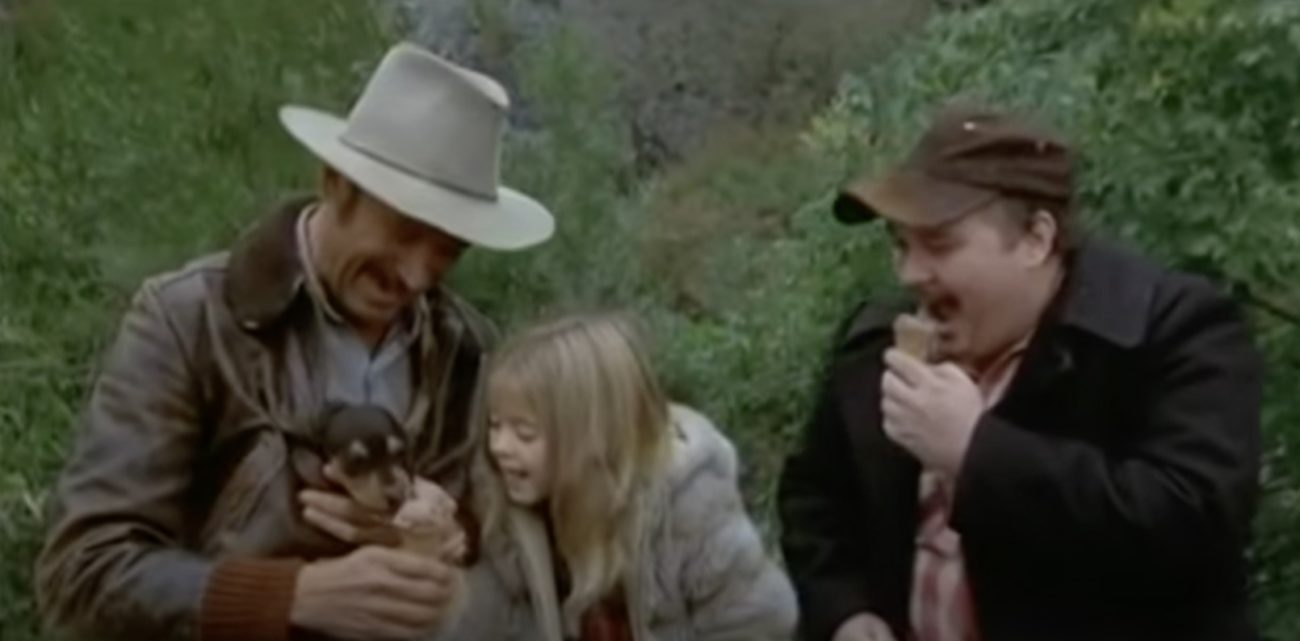




Also…side note I know the meaning behind every song ❤️
Savannah was such a beautiful little girl. The type of little girl I would love to read bed time stories to, tuck in bed at night. I would have kept her myself and not give her back to those horrible parents of hers
Very insightful and touching article!